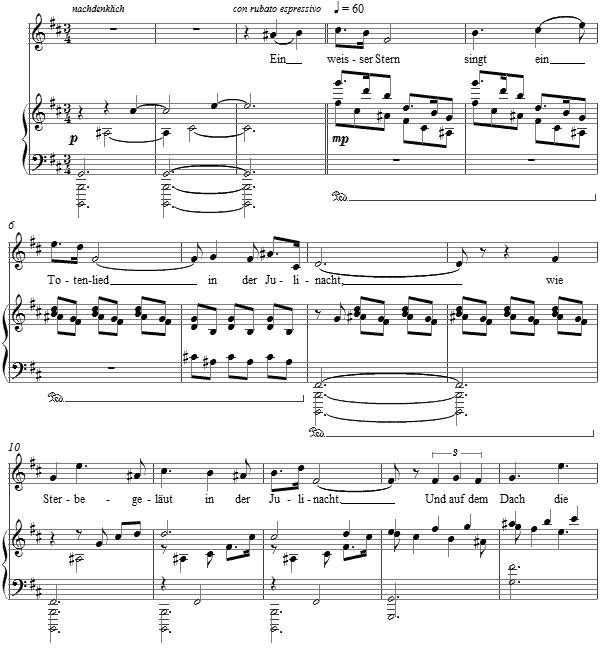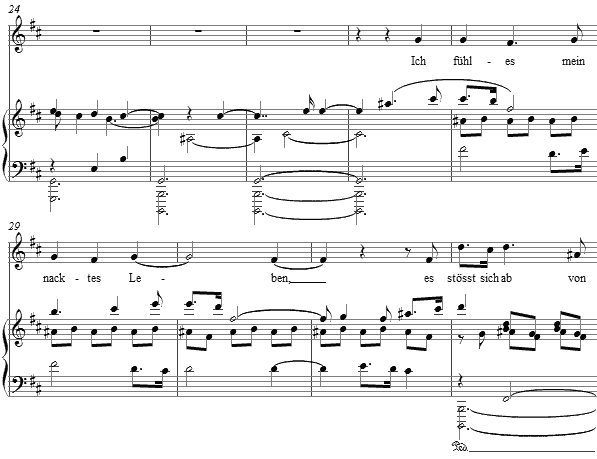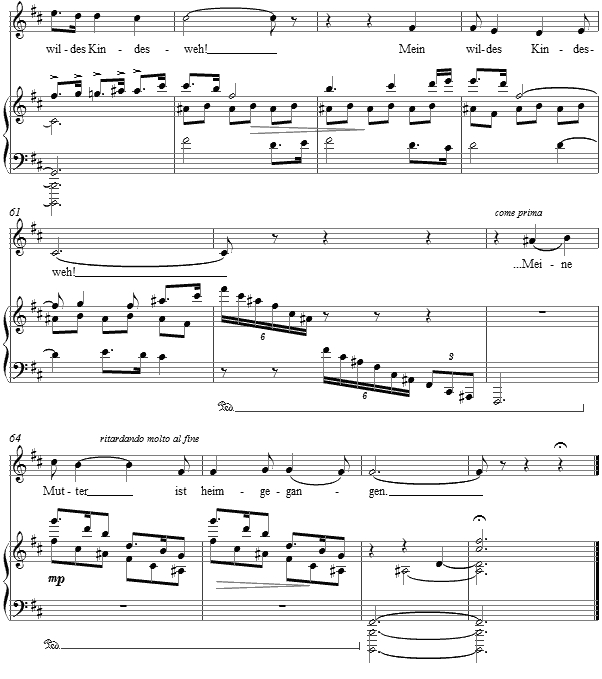Music and Texts of GARY BACHLUND
Vocal Music | Piano | Organ | Chamber Music | Orchestral | Articles and Commentary | Poems and Stories | Miscellany | FAQs
Mutter - (2009)
Else Lasker-Schüler
for medium voice and piano
Ein weisser Stern singt ein Totenlied
In der Julinacht,
Wie Sterbegeläut in der Julinacht.
Und auf dem Dach die Wolkenhand,
Die streifende, feuchte Schattenhand
Sucht nach meiner Mutter.
Ich fühle mein nacktes Leben,
Es stösst sich ab vom Mutterland,
So nackt war nie mein Leben,
So in die Zeit gegeben,
Als ob ich abgeblüht
Hinter des Tages Ende,
Versunken
Zwischen weiten Nächten stände,
Von Einsamskeiten gefangen.
Ach Gott! Mein wildes Kindesweh!
. . . Meine Mutter is heimgegangen.
[ 4 pages, circa 3' 30" ]
Esle Lasker-Schüler
The text is drawn from the collection, Styx, Gedichte. (Berlin: Axel Juncker, 1902) Other settings to texts of this fine poet are found at her listing in the authors' index, Else Lasker-Schüler. The youngest of six children in an assimilated Jewish family in Elberfeld, Elizabeth ("Else") Lasker-Schüler was still regarded by that society as an outsider. Her mother Jeanette was regarded as rather capricious, though her father Aron was a staid private banker. This text was written when she was twenty-one on the occasion of her mother's death in 1890 at the age of 51, and not published for another twelve years.
A white star sings a death song
in the July night.
Like death chimes in the July night.
And on the roof the clouded hand,
the streaked, wet shadow hand
which seeks my mother.
I feel nakedly my life,
as it pushes itself away from a mother's land,
never so stark was my life,
so given over to time
as were I to fade
behind the end of days,
lost,
suspended between distant nights,
trapped into loneliness.
Oh God! My savage childhood grief!
. . . My mother is gone home.
Rooted in B minor, with the often lowered sixth against a raised seventh degree of the scale reminiscent of Ashkenazic melodies, the "Klang" of G major against F sharp as dominant lifts the setting into a musical place wherein there is little tonic permanence.
The poem structure does not yield an obvious strophic form, and for this the second "verse" of the setting brings the theme back in the treble voice of the accompaniment as the vocal line plays out a quiet secondary voice before taking up the lead again.
The final gesture allows a clear dominant in the downward rushing arpeggio, before a short reprise of the opening phrase to sum up the last line suggesting some comfort for this loss.
The score for Mutter is available as a free PDF download, though any major commercial performance or recording of the work is prohibited without prior arrangement with the composer. Click on the graphic below for this piano-vocal score.



